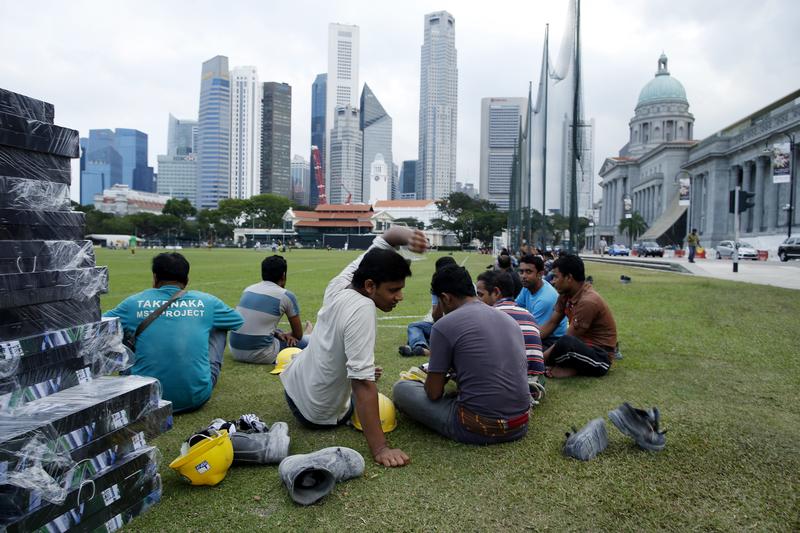When night falls after her 14-hour work day, Indonesian domestic worker Deni Apriyani retreats to her room in Singapore and reaches for a pen to jot down her feelings, in poem after poem.
“I usually write about my daily life,” the 27-year-old said.
“I feel satisfied — it’s like you have just released something heavy in your head,” Apriyani told the Thomson Reuters Foundation from Singapore, where she has been a domestic helper for an expatriate family since 2013.
Like tens of thousands of maids in Singapore, Apriyani rises at dawn to clean, cook and look after children but this largely invisible domestic workforce and other migrant workers in the city-state often live in the shadows.
Now a small number have taken to poetry to write about their daily struggles, being homesick, love and joy in an annual contest that aims to break down barriers with Singaporean society by showcasing migrant workers’ literary talents.
Apriyani won the first prize at this year’s competition on Sunday with a poem about domestic abuse, which was based on an account from a woman in her home village in Indonesia.
Organisers said they have seen steadily rising entries since the competition was launched in 2014, with over 100 submissions this year from migrant workers representing eight countries including Bangladesh, Burma and the Philippines.
The poems were mostly written in their own languages before being translated into English.
Organiser Shivaji Das said he had seen a surge in what he termed “activism poems” in recent years, which talk about the struggles of migrant workers.
“We have seen poems about their work situations, such as not being treated nicely, not being paid or around their living conditions,” said Das, an Indian-born management consultant and author who moved to Singapore 12 years ago.
[related]
Migrant rights groups allege mistreatment of domestic helpers is widespread although the Singaporean authorities have consistently denied this.
Das said the aim of the competition was to give migrant workers “a voice and a platform.”
“It is much more powerful to have them speaking about themselves in their own voice, their dreams and fears.”
“The whole idea is when you see them in this way, you tend to appreciate them more as a complete human being, instead of being just an economic machine,” Das told the Thomson Reuters Foundation.
Singapore counts on a large number of migrant workers in sectors ranging from construction and manufacturing to the service sector.



